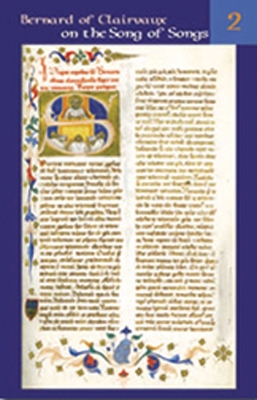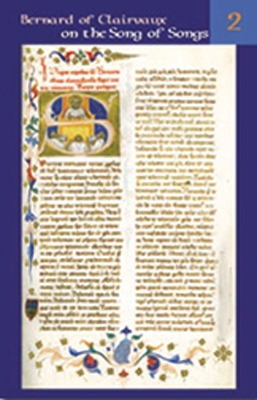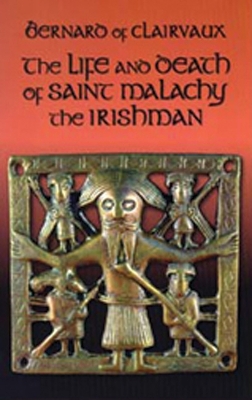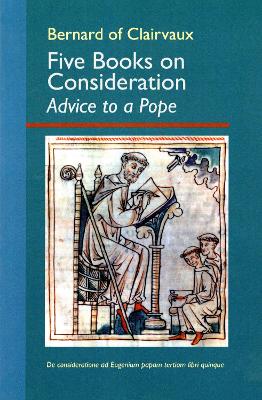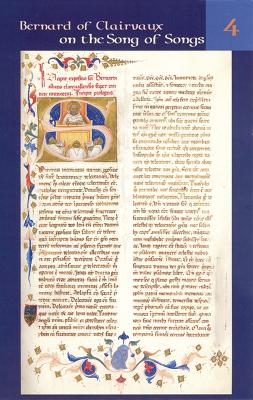Cistercian Fathers
8 primary works
Book 4
These eighty-six sermons are among the most famous and most beautiful examples of medieval scriptural exegesis. In them the modern reader can catch a glimpse of the genius an entire generation found irresistible.
Book 7
These eighty-six sermons are among the most famous and most beautiful examples of medieval scriptural exegesis. In them the modern reader can catch a glimpse of the genius an entire generation found irresistible.
Book 10
The Life and Death of Saint Malachy the Irishman
by of Clairvaux St.Bernard
The life of a saint by a saint. Malachy O'Morgair spent his life and considerable energies exhorting, wheedling, badgering, and praying his countrymen back to Christian faith and practice. Bernard holds him up in this Life, eulogy, and hymn as a model to bishops.
Book 13
Perhaps Bernard's most delightful tract, On Loving God posits that everything good in human persons is an expression of God's love and by love the person may participate in the being of the triune God. In a new analytic commentary, Stiegman examines Bernard's language, logic, and theology, demonstrating the vital importance of reading medieval authors on their own terms, without superimposing categories developed by later generations.
Book 19
Bernard ponders a question dear to early Scholasticism and the Reformation: How far can the fallen human person cooperate in salvation?
Book 25
The burgundian reformer abbot draws a picture of the perfect frontier bishop, and holds him up as a model for bishops everywhere.
Conversion is used here not in the modern sense of transferring from on ecclesiastical body to another, but in the patristic and monastic sense of metanoia, turning one's entire being wholly to God.
Book 37
Always a vigorous champion of papal reforms, Bernard of Clairvaux toward the end of his life saw one of his own monks raised to the papal throne as Eugene III. While acting as the new Pope's political and spiritual counsellor, the Great Cistercian abbot was tireless in advancing Eugene's policies and in defending his authority and prestige.
Both as a monk and as a strategist, Bernard realized that political astuteness needs the complement of sober and honest reflection. In Five Books on Consideration he defines 'consideration' for the Pope by examining the practical and the theological demands of the papal office.
Book 40
These eighty-six sermons are among the most famous and most beautiful examples of medieval scriptural exegesis. In them the modern reader can catch a glimpse of the genius an entire generation found irresistible.
